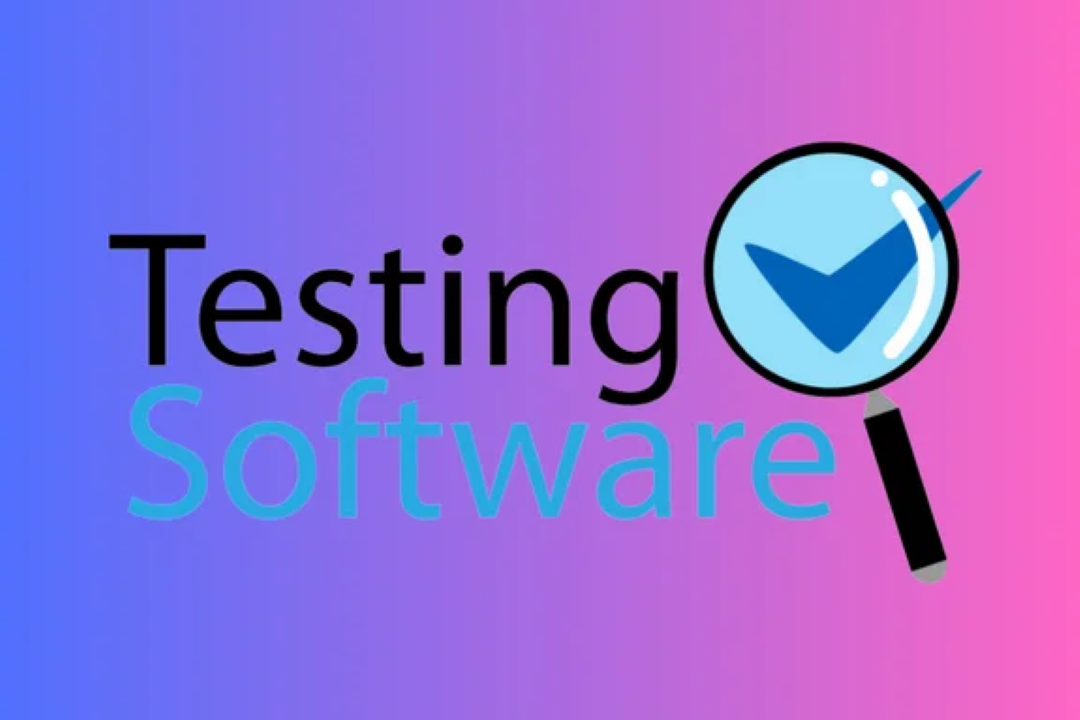Best Online Manual Testing Course Coursera
The best online manual testing course on Coursera is designed to provide learners with a solid found
Best Online Manual Testing Course Coursera
The best online manual testing course on Coursera serves as a comprehensive gateway for individuals looking to dive into the world of software testing. It equips learners with essential skills such as creating effective test cases, understanding testing methodologies, and identifying defects with precision. Through a combination of theoretical knowledge and hands-on projects, participants gain practical experience that mirrors real-world testing scenarios. This course is particularly useful for those seeking to enhance their career prospects in software quality assurance, as it culminates in a certification that showcases their expertise to potential employers in the tech industry.
To Download Our Brochure: https://www.justacademy.co/download-brochure-for-free
Message us for more information: +91 9987184296
The best online manual testing course on Coursera serves as a comprehensive gateway for individuals looking to dive into the world of software testing. It equips learners with essential skills such as creating effective test cases, understanding testing methodologies, and identifying defects with precision. Through a combination of theoretical knowledge and hands on projects, participants gain practical experience that mirrors real world testing scenarios. This course is particularly useful for those seeking to enhance their career prospects in software quality assurance, as it culminates in a certification that showcases their expertise to potential employers in the tech industry.
Course Overview
The “Best Online Manual Testing Course on Coursera” offers a thorough introduction to manual software testing, designed for aspiring quality assurance professionals. This course covers fundamental concepts such as test planning, test case development, and defect tracking through engaging video lectures and practical assignments. By working on real-time projects, students learn to apply testing methodologies effectively and enhance their troubleshooting skills. With an emphasis on industry-relevant techniques and best practices, participants will gain the expertise needed to excel in manual testing roles, concluding with a certification that validates their knowledge and boosts employability in the competitive tech landscape.
Course Description
The “Best Online Manual Testing Course on Coursera” is designed to equip learners with essential skills in software quality assurance. This comprehensive course covers key concepts such as test planning, execution, and defect identification, allowing participants to gain hands-on experience through real-time projects. With engaging video lectures and practical assignments, students will learn industry-standard testing techniques and best practices. By the end of the course, learners will be well-prepared to tackle manual testing challenges, earning a certification that enhances their qualifications for a successful career in software testing and quality assurance.
Key Features
1 - Comprehensive Tool Coverage: Provides hands-on training with a range of industry-standard testing tools, including Selenium, JIRA, LoadRunner, and TestRail.
2) Practical Exercises: Features real-world exercises and case studies to apply tools in various testing scenarios.
3) Interactive Learning: Includes interactive sessions with industry experts for personalized feedback and guidance.
4) Detailed Tutorials: Offers extensive tutorials and documentation on tool functionalities and best practices.
5) Advanced Techniques: Covers both fundamental and advanced techniques for using testing tools effectively.
6) Data Visualization: Integrates tools for visualizing test metrics and results, enhancing data interpretation and decision-making.
7) Tool Integration: Teaches how to integrate testing tools into the software development lifecycle for streamlined workflows.
8) Project-Based Learning: Focuses on project-based learning to build practical skills and create a portfolio of completed tasks.
9) Career Support: Provides resources and support for applying learned skills to real-world job scenarios, including resume building and interview preparation.
10) Up-to-Date Content: Ensures that course materials reflect the latest industry standards and tool updates.
Benefits of taking our course
Functional Tools
1 - Selenium: Selenium is a widely used open source tool for automating web applications. In the course, students learn how to utilize Selenium for manual testing by understanding its interface and features. It allows testers to write test scripts in various programming languages such as Java, Python, and C#. The course emphasizes the importance of using Selenium to perform functional testing across different browsers and platforms, thus giving students practical experience in managing test cases efficiently.
2) JIRA: JIRA is a powerful tool for issue tracking and project management utilized in software development and testing. The course covers how to use JIRA for logging defects and tracking issues throughout the testing lifecycle. Students are taught to create and manage test cases, monitor progress, and collaborate with development teams using JIRA’s comprehensive dashboard features. Understanding JIRA prepares students to work seamlessly in agile environments, where tracking changes and issues is crucial.
3) Postman: Postman is an essential tool for API testing, allowing testers to develop and execute automated tests for web services. The course introduces students to the basics of API testing with Postman, teaching them how to create requests, validate responses, and automate testing processes. By learning to utilize Postman’s functionalities, such as collection and environment settings, students gain insights into how APIs interact with applications and the importance of testing them for overall application performance.
4) TestRail: TestRail is a test case management tool that helps teams manage their testing efforts efficiently. The course provides insights on how to create, organize, and run test cases and manage test runs. Students learn to generate reports, analyze testing progress, and collaborate with team members in TestRail's user friendly interface. Mastery of TestRail equips students with vital skills necessary for maintaining thorough documentation of testing activities, a practice essential for quality assurance.
5) Qase: Qase is a modern test management tool that focuses on providing a robust platform for manual and automated testing. Throughout the course, students explore how to create and organize test cases, manage test runs, and integrate with CI/CD tools. The user friendly interface of Qase enhances the learners’ ability to communicate test results effectively and track testing efforts in real time. Understanding Qase helps students streamline their testing processes and improve overall project efficiency.
6) Bugzilla: Bugzilla is an open source bug tracking system that aids in defect management for software projects. In the course, students learn how to report bugs, classify them, and manage their lifecycle from identification to resolution. By understanding the functionalities of Bugzilla, such as customizable workflows and advanced searching capabilities, learners become adept at handling defect tracking effectively. Bugzilla is essential for students looking to strengthen their skills in managing and prioritizing defects within a development environment.
Expanded Course Descriptions
- Selenium:
- Integration with CI/CD: Students learn how to integrate Selenium tests within continuous integration and continuous deployment pipelines to ensure ongoing software quality.
- Cross Browser Testing: The course covers techniques for executing tests across different browsers (Chrome, Firefox, Safari, etc.) and devices to verify functionality and user experience.
- Handling Dynamic Content: Emphasis on using Selenium’s advanced features to interact with dynamic web elements, enhancing the reliability of automated tests.
- 2. JIRA:
- Agile Methodologies: The course dives into best practices for using JIRA within Agile frameworks, including Scrum and Kanban, to maximize team collaboration.
- Custom Workflows: Students learn how to build and customize workflows in JIRA to fit specific project needs, streamlining testing and development processes.
- Reporting and Analytics: Focus on using JIRA’s reporting tools to track project metrics and progress, enabling better decision making based on real time data.
- 3. Postman:
- Automated Testing with Collections: Students explore how to create collections for organizing requests and automating test sequences, leading to more efficient testing processes.
- Mock Servers: The course introduces the use of mock servers to simulate API responses, allowing students to test applications even when the backend is not available.
- Testing with Scripts: Students learn to write pre request and test scripts to automate validation, enhancing their API testing capabilities.
- 4. TestRail:
- Integration with Automation Tools: The course showcases how to integrate TestRail with various automation frameworks and tools, such as Selenium and JIRA, to streamline testing efforts.
- Test Plan Creation: Focus on how to create comprehensive test plans within TestRail to ensure structured test execution and coverage analysis.
- Real Time Collaboration: Students learn methods to collaborate in real time within TestRail, sharing updates and feedback efficiently among team members.
- 5. Qase:
- Integration with Development Tools: The course teaches how to connect Qase with tools such as GitHub and Jenkins to automate testing workflows and provide instant delivery feedback.
- Comprehensive Reporting: Students become proficient in generating and analyzing different types of reports in Qase to assess testing effectiveness and make data driven improvements.
- Test Case Versioning: Coverage of version control within Qase helps students manage test case evolution and changes over time, ensuring clarity and visibility.
- 6. Bugzilla:
- Advanced Search Features: Students learn how to use Bugzilla’s advanced search capabilities to filter and retrieve bugs quickly, aiding in effective project management.
- Email Notifications and Custom Queries: The course covers setting up email notifications for bug tracking updates and creating custom queries to streamline defect management processes.
- Attachment Management: Students are trained on how to effectively use attachments for bug reports, enhancing communication about issues and facilitating faster resolution.
Additional Skills Developed Across Courses
Effective Communication: Each course emphasizes clear communication skills, enabling students to articulate bugs, test results, and project updates with team members.
Problem Solving Techniques: Students enhance their ability to diagnose issues quickly and propose effective solutions through hands on project experience.
Time Management: With the emphasis on real time projects, learners also improve their time management skills, learning to prioritize tasks and meet deadlines effectively.
By incorporating these expanded points, JustAcademy ensures that learners receive a comprehensive education that prepares them for real world challenges in software testing and quality assurance.
Browse our course links : https://www.justacademy.co/all-courses
To Join our FREE DEMO Session:
This information is sourced from JustAcademy
Contact Info:
Roshan Chaturvedi
Message us on Whatsapp:
Email id: info@justacademy.co












